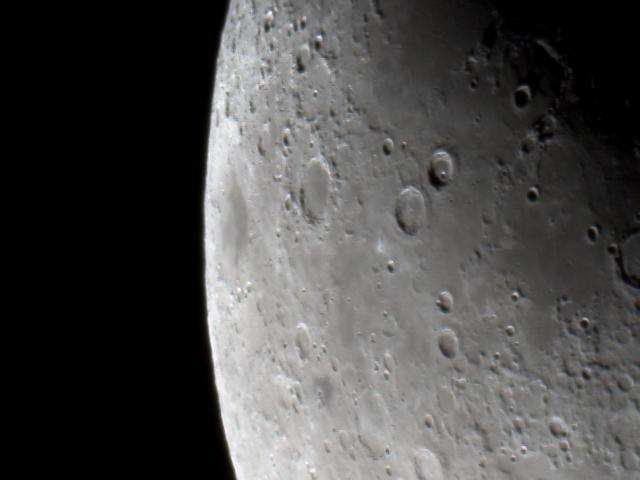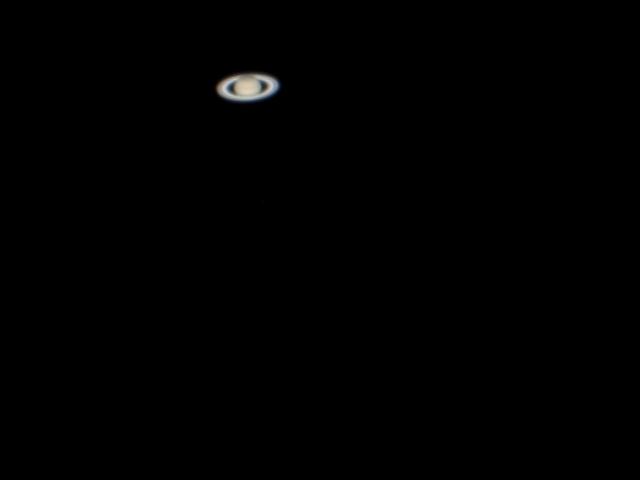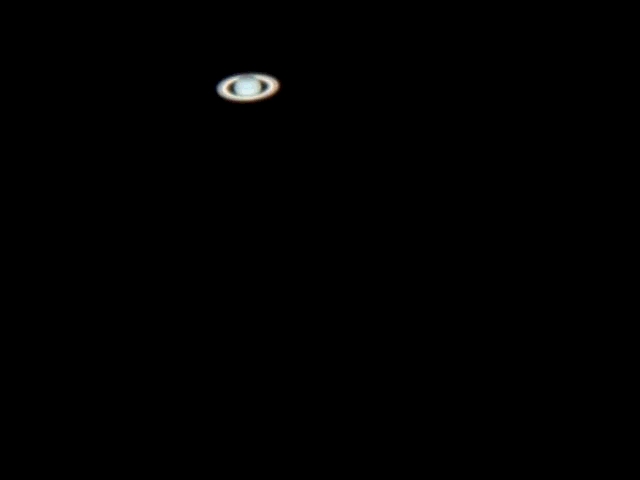Last updated: 11 January 2004
|
Last updated: 11 January 2004 |

You can then make any adjustments to the range. Unfortunately, unlike other image processing apps I've used, this one doesn't show you a preview as you make changes to the histogram. I stretched out the range somewhat. The image was flipped vertically (you can change this while editing an image). When doing some manipulating I wanted to UNDO an action; unlike other applications (at least on the Mac, where many menu items are standard), Undo is under the Process menu since there is no Edit menu. Undo may not work as expected; if you select to "Stretch Image Data" from the Process menu, the operation is actually two part and only the last part will be undone. This means that you can not return your image to the way it was before selecting to Stretch Image Data (except by closing the file without saving and starting over). (The Process menu spells "Exponential" as "Exponetial"; another typo...). And speaking of standardization (I was a few sentences back), when I tried to re-open the file I would get the color selection (mono, red, green, blue) dialog box but no image would appear when I clicked the button. Only after several tries did I discover that the OK and Cancel buttons were reversed from their appearance in other dialog boxes. (Yes, we Mac users are so spoiled...) Most of the techniques I applied to this Moon image had little-to-no visible useful effect. But I did apply an Unsharp Mask and got a nice image. Below are the original and edited images of the Moon:


I then started some minor editing of the Saturn image. I did some playing around, including bringing up View-->Scale Display and then cancelling from its two dialog boxes; unfortunately, the application ignored my cancels and made the edits anyway (software bug?). I edited each red, green, and blue pane separately and then did an "RGB Merge". This brightened each of the colors but really didn't improve on the original. Compare the original (top) and edited (bottom) images:


In my limited editing I noticed many of the same features that are in other image processing programs. If you are more familiar with them you may find that the Image Processing application will be your least used module in the Autostar Suite. If you don't have another powerful image editor then you will find that this module can provide you with lots of capabilities to either improve or ruin your astrophotographs.
Bottom line on the Autostar Suite: A nice set of generally very capable applications, with some degree of integration. I suspect that most users will find the Lunar Planetary Imager and its module to be the most frequently used. I know I will. Even with its documentation and program flaws, Meade has provided a nice accessory at a very reasonable price. And it seems to work well in Virtual PC 6.1 under Mac OS X 10.3.2.
Go back to the previous section - Lunar Planetary Imager (LPI)
Go back to the first section - Introduction
Return to the top of this page.
Go back to the Autostar Information page.
Go back to the ETX Home Page.